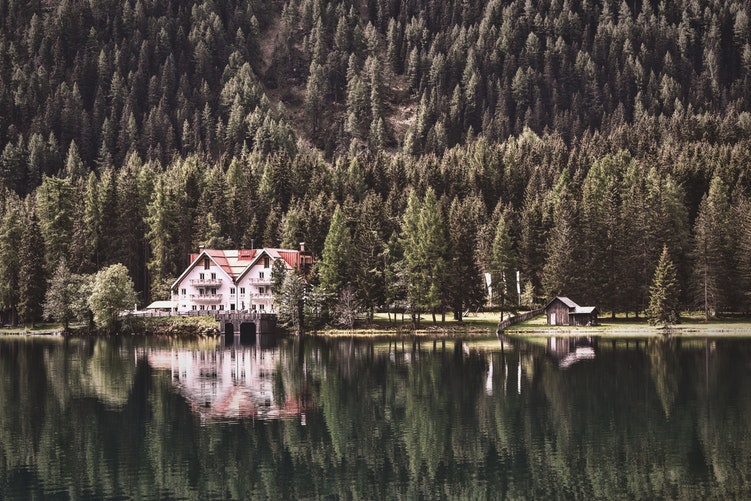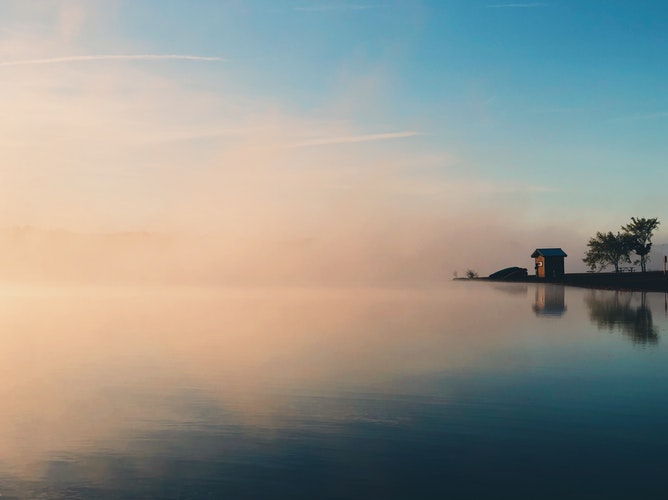Home is Where The Water is!
We all have different ideas of a dream home, don’t we? For some, a cozy place in the city is the best it could ever get. For others, the idea of a house with loads of land attached is something close to perfection. And, for many of us, the idea of a home by the water is about the best thing we could imagine.
Whether you fancy living by the sea, or near to a lake or river, water can add a picturesque quality to many homes. We’ve all seen that fairy tale cottage with a creek trickling through the front yard, haven’t we? And, let’s be frank; the idea of sea views every morning is, quite honestly, the stuff of many dreams.
And, if you want this goal enough, you may well strike lucky. It may be that you’ve already moved into a home which boasts of water benefits. Or, perhaps you have your eye on a waterfront property at the moment. Either way, your dreams are on the brink of coming true.
And, we don’t want to crush that bubble. In truth, who wouldn’t want a home like that? But, to ensure you gain full benefit from your sea-based lifestyle, it’s essential to note that there are downsides to close water proximity. That’s not to say you can’t make a home like this work for you. But, it is worth noting the risks so that you can prepare to meet them down the line. Lucky for you, those risks are exactly what we’re going to look at here.
Water often leads to pests
We’re just going to come out and say it; when you live by the water, you open yourself up to more pests. That’s a fact. River or sea, you can bet there’s a whole new infestation to tackle. Those living by a river, for instance, often open themselves to risks of rats. After all, rivers = drains, which mean sewage. And, that’s what rats love best? As such, many a river cottage dream has been destroyed by continual rat infestations. And, the sea isn’t immune from risks like these, either. But, where the sea is involved, there’s more chance that you’ll be dealing with seagulls. These huge birds scavenge and hunt by the sea. And, if they spot human habitation, there’s every chance they’ll start to harass you for food, too.
But, before you decide issues like these spell the end, think again. In truth, there’s no reason you can’t live in harmony with these creatures. Knowing the risks ensures you can take steps to keep your home safe. That might mean reconsidering how you store your food. For the most part, you should aim to keep everything above floor level. It’s also worth considering simple things, like covering holes through which creatures could enter your home. Just like that, you and these water-creatures will be able to live in harmony. Well, that’s the hope…
What about the water itself?
This is the kicker, isn’t it? When you’re living near a body of water, there is a high chance your home could flood at some stage. Admittedly, those residing in sea homes shouldn’t face this reality. But, it isn’t unusual for rivers to break their banks after heavy rainfall. And, if that happens, many who live in riverside homes suffer from floods. You don’t need us to tell you that’s not what you want. A flood in your home has the potential to ruin your much-loved furniture, flooring, and even your decor. Not to mention that water damage can lead to structural issues and a need for repairs. You can click here to learn more about the types of repairs necessary in cases like these. Needless to say, it’s work you won’t want to face.
Admittedly, many homes at risk of flood should already have precautions in place. Flood-proofing can go a long way towards at least reducing damage here. But, you can’t assume that’s the case. As such, you should make sure to take necessary steps to protect yourself. This could include installing barrier seals and doing anything you can to keep lower floors watertight. It’s also worth keeping furniture raised so that any water which does break through doesn’t cause damage. This won’t stop flooding, but it will at least ensure that the trouble caused is minimal.
Note, too, that floods aren’t the only water-based risk. Homes by the water also fall foul to issues of damp at times. Even by the sea, there is more moisture in the air than there would be elsewhere. And, that can manifest in unpleasant ways. In truth, protections here are much the same. Again, checking seals are secure should stop moisture from breaking through. Note, too, that you may want to open your windows whenever possible to keep mold spores from spreading.
What’s that smell?
We’re sorry to break it to you, but waterside living can also get pretty stinky. This applies most to rivers, but even the sea can fall foul here at times. A mixture of sewage and stagnant water can cause some unpleasant pongs. For the most part, smells like these should come and go. If you smell scents continually, contact the correct sewage company and query the situation. Sometimes, drainage issues can lead to excess sewage in the water.
But, even if there isn’t a drainage problem, smells will be worse on some days than others. This can be due to anything from an unpleasant wind direction to water building in the wrong place. Sadly, this problem doesn’t have as easy a solution as other issues discussed. But, knowledge can help a little here, too. For the most part, you should soon start to judge which weather types are most liable to lead to smells. And, if you know that, you can at least reduce the damage by keeping your windows shut at these times. After this simple step, there’s every chance your home will remain stink-free for a long time to come.

